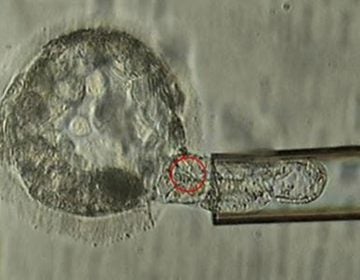Designer babies: Discussing the ethics of genetic screening
Gene sequencing lets us screen embryos for diseases and traits. Is this the right track for healthy and happy babies, or a slippery slope to eugenics?
Listen 51:13
The ethics of genetic screening and ‘designer babies’
Are you ready for the era of designer babies?
Advances in gene sequencing have now made it possible for embryos to be screened for a host of genetic diseases and physical traits. Private companies are capitalizing on this technology, offering polygenic screening before embryos are implanted. They give each embryo a risk score for health conditions like heart disease, Crohn’s disease, schizophrenia and obesity, and they can also screen for characteristics like IQ, eye color and height.
Then, prospective parents can choose.
A recent Harvard University survey found a significant majority of respondents approved of using embryo screening, but what ethical questions does this new technology raise? Is this the best way to ensure healthy, happy babies? Or are we on a slippery slope to eugenics?
In this episode, we’ll weigh these ethical quandaries, and we want to hear from you: where do you draw the line on genetic screening?
Guests:
- Anna Louie Sussman, journalist who writes on gender and reproduction. She most recently published a 3-part series, “The Embryo Question,” for The New York Times
- Art Caplan, bioethicist at New York University
- Simone Collins, local mom who has used genetic screening for health and I.Q.
WHYY is your source for fact-based, in-depth journalism and information. As a nonprofit organization, we rely on financial support from readers like you. Please give today.





